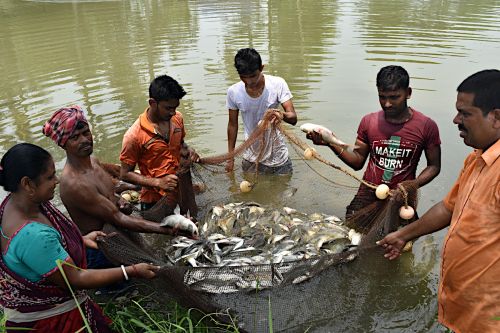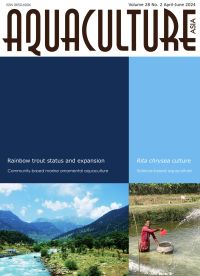Scientific aquaculture to promote better livelihoods for Scheduled Caste farmers
19 June 2024 | Arabinda Das, R.N. Mandal, B.N. Paul, S. Adhikari, P.P. Chakrabarti, S.S. Giri, A. Hussan, F. Hoque, H.K. De, Ashis Saha and S. Ghosh | 622 Downloads | Freshwater finfish, India, Inland aquaculture, Livelihoods, gender and social issues
The Central Institute of Freshwater Aquaculture uses funds from the Scheduled Caste Sub Plan project to provide support such as fish seed, feed, lime, and manure to Scheduled Caste farmers. The goal is to enable them to utilise untapped water resources for fish production. This support in aquaculture inputs has resulted in increased fish production, heightened income, the creation of employment opportunities, the development of skilled labourers, and made a significant contribution to the national income. Marginal fish farmers have consistently generated revenue through these efforts.
Furthermore, aquaculture serves as a source of protein-rich food, contributing to nutritional security. It directly provides poor communities with essential nutrients through fish consumption, promoting health nourishment. Indirectly, it aids in combating hidden hunger prevalent among impoverished individuals due to a lack of sufficient nutritious food.
This article describes the methodology and outcomes of the project Scientists-Farmers Interface and Aquaculture Input Support to SC Farmers of Sonarpur C.D. Block.
Creative Commons Attribution.

